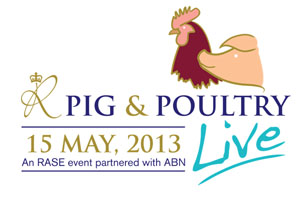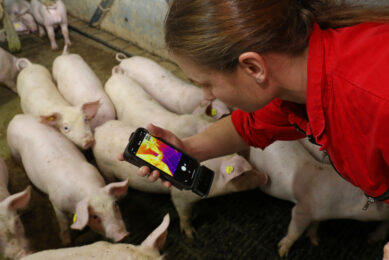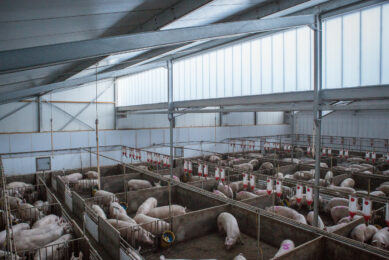Hot on the 2013 agenda: Welfare and staffing

The 2013 edition of Pig & Poultry Live, held near Coventry, UK and organised by the Royal Agricultural Society of England and ABN, attracted an audience of 650 people and focused on welfare and people management. These topics were chosen by popular demand.
A few years ago, when shown a picture of a sow in a gestation stall, British consumers generally agreed that it was cruel. They were then told that this system was illegal in the UK, but that the alternative housing systems now in use had increased UK production costs. So would they be prepared to pay for high welfare UK pigmeat? Back then, not many would.
However, thanks to many demonstrations and a nationwide poster campaign, the UK pig industry has persuaded the British consumer that high welfare is worth paying for. Consumers have to be constantly reminded of this as during the recession consumers have been ‘trading down’, as shown by the big increase in business that the ‘less fashionable’ supermarkets have achieved of late. In Coventry, on May 15, top industry experts each gave their views on welfare, after which the discussion was opened up to the audience.
Ed Garner of Kantar Worldpanel looked at consumer purchasing trends. Freedom Foods is the food assurance and labelling scheme of the Royal Society for the Prevention of Cruelty to Animals (RSPCA). It is viewed as supplying a niche market but 40% of British households buy it and just this April McDonald’s switched to 100% Freedom Foods pork.
Morrison’s is a leading UK supermarket and the company’s head of agriculture, David Evans, has, during his career, farmed and worked as a vet. Evans commented that the consumer perception of welfare was very important but posed the question how much does the public perceive and understand? He said: “The industry has to communicate better and make the public aware that animals in the UK are looked after better.”
Andrea Gavinelli, the European Union’s animal welfare chief, commented that welfare is not a niche market as indicated by the substantial sums of money the EU is investing in animal welfare.
The famous 1965 Bramwell Report on animal welfare highlighted the ‘Five Freedoms’. “These are still very important, but to which must be added ‘absence of suffering’, stated animal scientist Julia Wrathall, who is head of the RSPCA Farm Animals Team.
Stephen Lister, a partner in Norfolk based Crowshall Veterinary Services and a former chairman of the Farm Animal Welfare Council said that animals deserve a good life and that consumers must be realistic in their expectations and have to pay for welfare.
Prof Sandra Edwards, University of Newcastle, opined that the public equate welfare with the natural state, whereas the farmer equates welfare with good performance.
National Farmers Union (NFU) president Peter Kendall declared that “welfare is all about perception and that’s why we need to engage with our customers. Without that discussion, the danger is UK producers are forced to have higher regulation through legislation, but retailers import cheaper foods from elsewhere.”
People management
The interactive cafe-style afternoon session, chaired by RASE CEO David Gardner, addressed the industry’s need to attract and retain the best people thinking in the most innovative way. The British army spends almost €120 million annually on promoting itself – but its agriculture spends nowhere near that, it was considered. Trying to attract teenagers into farming is considered too late – the seeds must be sown at primary school level, i.e. before 11 years of age.
The NFU ‘Open Farm’ visits concept is an ideal way to get youngsters interested in farming as a career. In addition, the ‘Ambassador programme’ from the engineering industry was discussed. In this programme, 20-30 year-olds are going into schools to promote engineering. British agriculture is looking to find 1,000 ambassadors to adopt a similar role to encourage youngsters to pursue a career in the farming industry.
Speakers in this session included David Yiend, CEO of AB Agri; John Ryan, CEO of Great Place to Work; Marion Regan of Hugh Lowe Farm; George Gordon of LKL Services; and Martin Redfearn, head of Barclays Agriculture.











